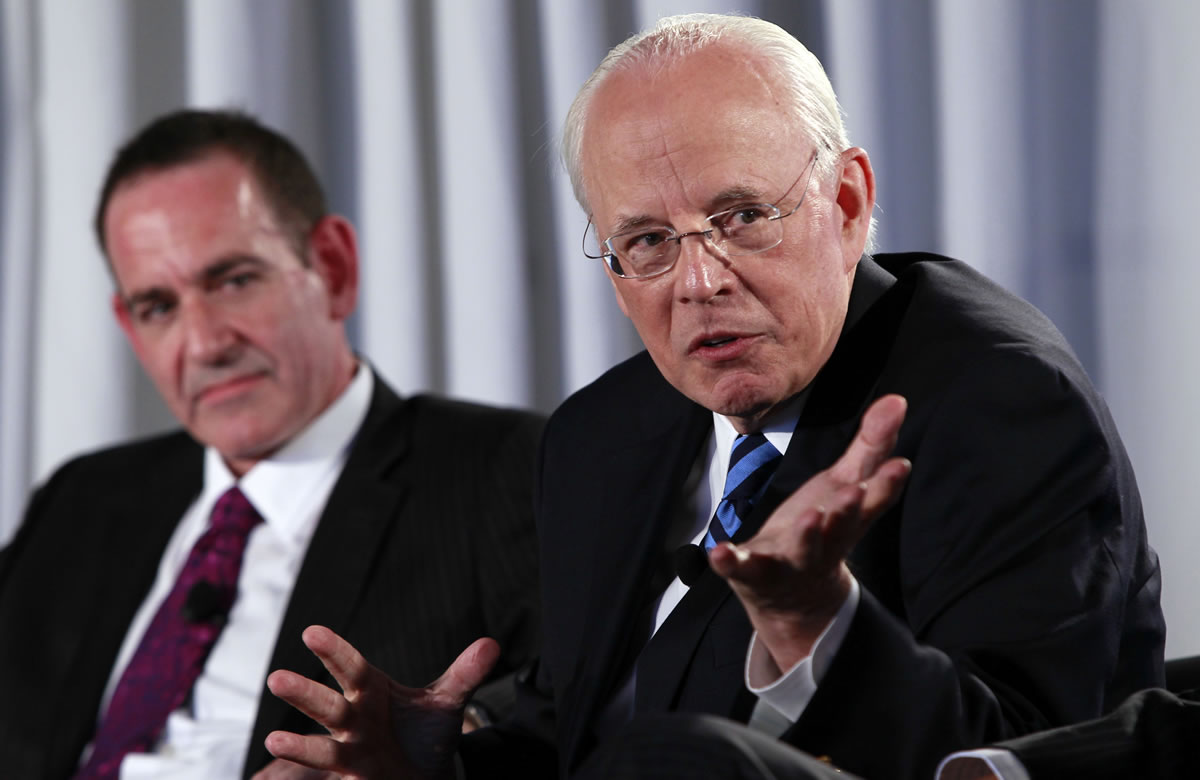WASHINGTON — Watergate’s “what ifs” are still tantalizing.
What if a security guard hadn’t noticed tape on a door latch outside Democratic headquarters at the Watergate office building not far from the White House?
What if a calculating president hadn’t taped his private words for posterity?
What if Richard Nixon had simply come clean about the break-in and cover-up, and apologized?
Forty years of investigation, reporting, trials, debate and historical research have yielded no simple answer to how a clumsy raid that Nixon’s spokesman termed a “third-rate burglary” became a titanic constitutional struggle and led to his resignation.
“The shame of it all is that it didn’t have to be,” Stanley Kutler, the dean of Watergate historians, told The Associated Press in an interview. “Had he been forthcoming, had he told his men, ‘This is crazy, who ordered this?’ … (He) wouldn’t have had this problem.”
Of course, Watergate would never have happened had officials at Nixon’s re-election campaign committee not responded to his ceaseless demands for dirt on the opposition by hiring E. Howard Hunt and G. Gordon Liddy. The ex-CIA and ex-FBI operatives presented an outline, codenamed Operation Gemstone, that included bugging and rifling the files at Democratic National Committee headquarters.
“I was one of those who tried to throw cold water on Gordon Liddy’s plans to break in, and thought I had done so,” recalled former White House counsel John Dean. “But I hadn’t killed the plans. It came back to haunt us.”
Liddy and four others were caught red-handed early on the morning of June 17, 1972 — actually, the second of two break-ins at the DNC — when security guard Frank Wills, seeing the taped latch, summoned police.
“The insanity of it and the stupidity of it have never ceased to amaze me,” Dean, who’s now 73, said in an AP interview. Hunt died in 2007. Liddy, now a conservative radio host, declined an interview request.
While there’s no evidence Nixon knew of the burglary plot beforehand, within days he was neck-deep in a conspiracy to hide the burglars’ ties to his campaign and the White House. Meeting with top aides, he readily agreed to paying hundreds of thousands of dollars in hush money and urged that the CIA intervene to block an FBI investigation.
Following the money trail eventually led investigators to the truth, and began a more than two-year legal war involving grand juries, Congress and the Supreme Court.
It ended when Nixon, facing certain impeachment, resigned from office on Aug. 8, 1974.
“One of the mysteries of Watergate is why didn’t Richard Nixon come on television, look the camera in the eye — he was a master of that — and say, to us, the American people, ‘Yes, I had knowledge of this?'” said Kutler.



